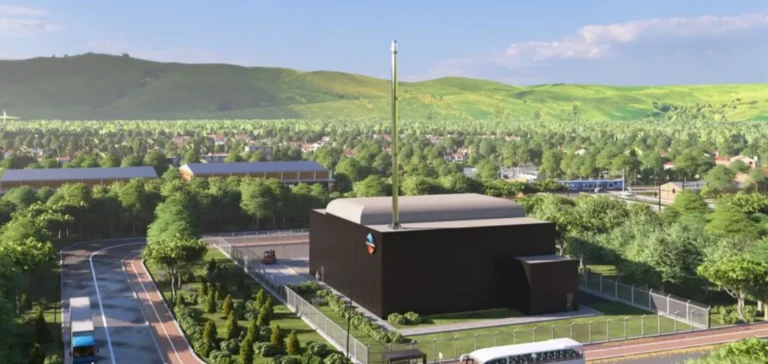The Commissariat à l’énergie atomique et aux énergies alternatives (CEA – French Atomic Energy and Alternative Energies Commission) has announced the signing of a letter of intent with start-up Calogena to explore the deployment of a small modular reactor (SMR) at its Cadarache site in southern France. If successful, the project would lead to the commissioning of a 30-megawatt thermal CAL30 module to supply heat to the research centre’s district heating network.
Calogena, a subsidiary of French industrial group Gorgé, is developing a low-power nuclear reactor designed not to generate electricity but to provide decarbonised heat to urban areas. According to the joint statement issued by both parties, the feasibility of connecting the module to the site’s heat network is currently under review.
A project focused on industrial heat
The CAL30 reactor is not intended to replace traditional nuclear power plants but to meet specific thermal needs in urban or industrial contexts. With a capacity significantly lower than conventional reactors, it is described as being 150 times smaller than a European pressurised reactor (EPR). The technology uses uranium-based fuel, and Calogena claims that multiple safety barriers eliminate the risk of core meltdown.
The reactor’s certification request was submitted in November 2024 to the French nuclear safety authority (ASN – Autorité de sûreté nucléaire), and the process is still under review. Calogena has also initiated preliminary discussions with the Finnish nuclear regulator STUK (Säteilyturvakeskus) regarding a potential deployment in Finland.
A competitive civil nuclear segment
The small modular reactor segment has attracted attention from both public and private players in recent years. Before Calogena, the only accepted safety option file in France was for the Nuward project, led by the national electricity provider EDF in July 2023. Another start-up, Jimmy, submitted a creation authorisation request (DAC – demande d’autorisation de création) in April 2024 but had to revise its project design, according to La Tribune in July.
EDF also updated Nuward’s original plans in 2024 to develop a new design, indicating increased competition in this emerging segment. SMR projects aim to address the energy needs of heating networks, remote industrial sites, and isolated areas, offering a more compact and potentially faster-to-deploy format.
“Safety options are currently under review,” Calogena stated, adding that its goal remains to provide an operational solution on a shorter timeline than conventional nuclear infrastructure.






















